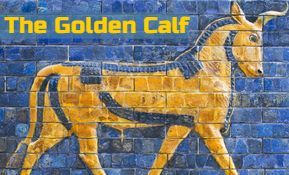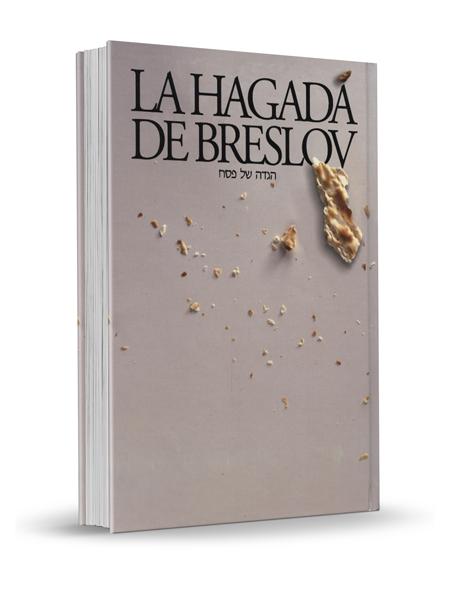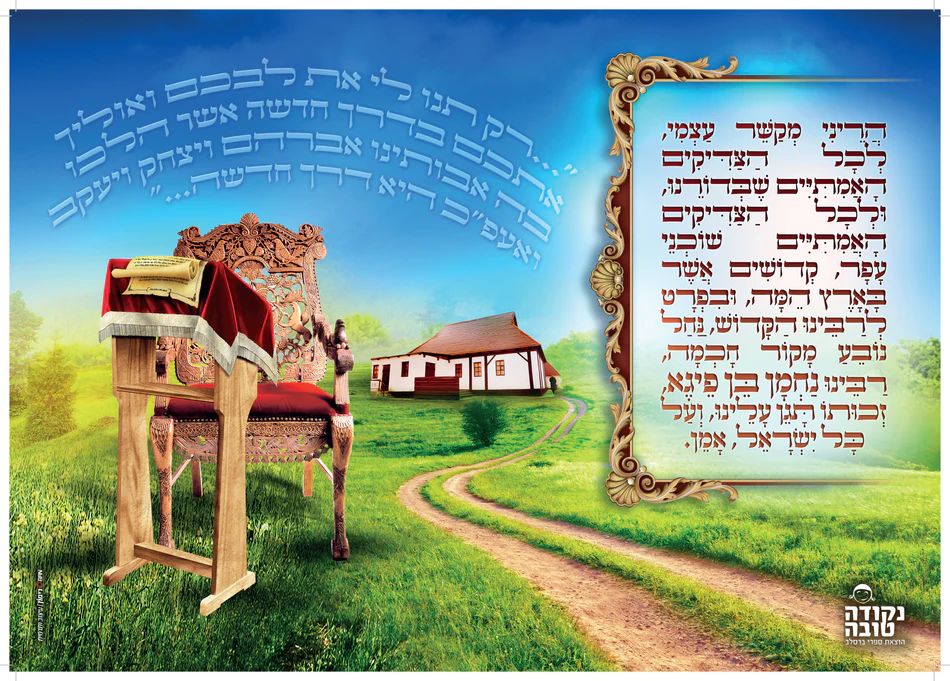
Mishpatim: Blueprint of Reality
A startling insight into Judaism is provided by the Torah’s juxtaposition of the civil laws with the Ten Commandments. Most people think of religion as a matter of ritual...

“And these are the ordinances that you shall set before them” (Shemot 21:1).
“’And these are the ordinances…’ Wherever it says, ‘these’ [in the Torah], it implies separation from what has been stated previously. [Where it says], ‘And these,’ [it means that] it is adding to what has been previously stated (Tanchuma Mishpatim 3). [Thus] just as what has been previously stated [namely the Ten Commandments], were from Sinai, these too were from Sinai” (Rashi).
A startling insight into Judaism is provided by the Torah’s juxtaposition of the civil laws with the Ten Commandments. Most people think of religion as a matter of ritual and temple. The Torah doesn’t make a distinction between “church and state;” to the contrary, all areas of life are intertwined. Holiness is derived from correct business dealings (according to religious law) no less than from ritual piety. The civil laws that govern our property and monetary affairs are from the same origin as the Ten Commandments — God’s revelation at Mount Sinai (The Artscroll Chumash).
Rabbi Yerucham Levovitz points out that this Rashi reveals the essential difference between secular civil law and Torah law. Secular civil law is based on the prevailing moral consensus, which tends to change from era to era. Social and economic conditions play a large factor in how these laws are created. Since there is no moral obligation to accept these laws, they are often rejected in the name of modernization.
Secular law follows the inclinations of the legislators, who are often despots and dictators who change their opinions according to their personal desires, physical lusts or whims. Since these laws evolved as a product of changing circumstances, they contain many contradictions and inconsistencies.
Our holy Torah, however, was given to us by God Himself. The Torah is not based on the prevalent moral consensus; rather, the Torah provides the basis for man. “The Holy One, Blessed be He, looked into the Torah and created the world” (Zohar, Terumah 161). The Creator designed the Universe according to the Torah — the Blueprint of Creation.
Man was formed according to the Torah and its commandments. “Man has 248 limbs corresponding to the 248 Positive Commandments, and 365 sinews corresponding to the 365 Negative Commandments” (Zohar, Vayishlach).
Let’s look, for example, at the mitzvah of honoring our parents. We assume that this mitzvah exists because we have parents. But why were we created in such a way that we need parents? Amoebas do quite well by splitting into two.
Reb Yerucham explains that God wanted to give us the mitzvah of honoring our parents for our own benefit, therefore we need parents. In other words, parents aren’t the reason for the mitzvah, but rather the mitzvah of honoring parents brought about the reality of a mother and a father (Daat Torah, Mishpatim).
Everything about man was created according to the Torah, and the finest details of each aspect of creation were formed according to the Torah. This includes all the psychological forces within man. People who live a life of Torah and mitzvot are living in harmony with the Blueprint for Creation.
In Harmony with Reality
The Chazon Ish describes the joy of living in harmony with spiritual reality:
“When a person’s intellect recognizes the truth of His existence, Blessed be He, his soul is immediately filled with an unbounded joy and feels tremendous pleasure. The imagination unites with the intellect to experience pleasure in God. All the pleasures of the flesh slip away, pass away, and his refined soul is enveloped in holiness as if it withdrew from the turbid body and roams in the highest heavens.“When a person is elevated to these holy values, a whole new world reveals itself to him. In this world, it is possible be momentarily like an angel and to have pleasure in the Holy Radiance.“All the pleasures of this world become like naught compared to the pleasure of a person devoted to his Maker, Blessed be He” (Emunah U’Bitachon).
Any Jew can live with this reality! Even if we’re far from perfect, we can still derive pleasure from the light of holiness and taste its sweet nectar. Every step we take in fulfilling our spirituality, in accordance with the plan of creation, will bring us happiness, enjoyment and satisfaction.
Keeping to the Blueprint
What happens when we stray from the original intention of our Creator? Reb Yerucham brings an analogy of an apartment building designed to provide the inhabitants with a comfortable living environment. The rooms were laid out to accommodate the needs of an average family, with fully equipped kitchens, bathrooms, and closets. Every possible convenience was meticulously provided for. The residents enjoyed their homes immensely.
The municipal authorities, however, decided to expropriate the building and convert it into a hospital. The apartments were turned into operating rooms, hospital corridors and the like. But over the years it became clear that the new hospital would never be able to function smoothly. It had originally been designed as a residential building and it would never be fully suitable as a medical center.
The same applies to man. Man was created according to the Creator’s plan – the Torah. If we adopt a lifestyle foreign to the Torah, it’s like attempting to change the function for which the “building” of a Jew was made. Such an attempt is doomed to failure (Daat Torah).
A materialistic lifestyle isn’t appropriate for the spiritual desires of a human being, especially a Jew. Since a person was created “to enjoy God and to have pleasure from the radiance of His Presence,” as the Mesilat Yesharim (Path of the Just) puts it, “no other enjoyment will bring full satisfaction to his soul.”
Spiritual Indivisibility
“And these are the ordinances that you shall set before them” (Shemot 21:1).
The verse states, “And these” rather that “these,” to teach us that the Torah’s ordinances governing our property and monetary affairs are from the same Origin as the Ten Commandments. The Torah embraces all areas of life and its sphere of influence is indivisible.
We must be honest and sincere in our business dealings in the same way that we strive for piety in matters of ritual. “One who wishes to become a chassid, a devoutly pious person, should be careful regarding the laws of damages” (Baba Kamma 30a). This forcefully refutes the common misconception that “religion” is confined to ritual and temple. One who is negligent with another person’s property is as irreligious as someone who is negligent in observing Shabbat or kashrut.
The “and” is added at the beginning of the verse to teach us of the latent spiritual capacities within us, implanted by the Torah – the Blueprint of Creation. We have a refined soul capable of enjoying the ultimate spiritual bliss of connecting to the Master Plan of the universe. May we merit the happiness and fulfillment that comes through our observance of Torah and mitzvot.











Tell us what you think!
Thank you for your comment!
It will be published after approval by the Editor.